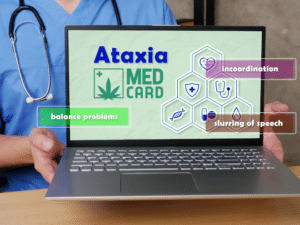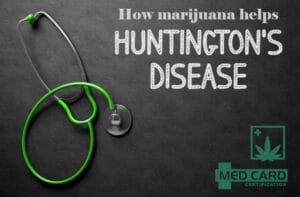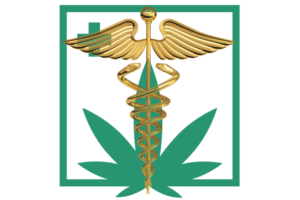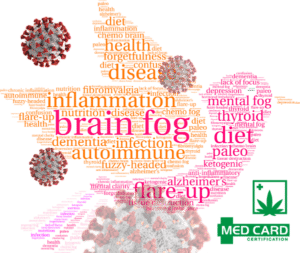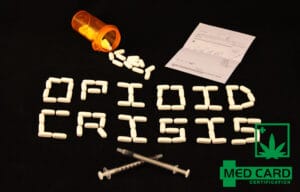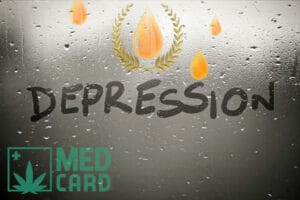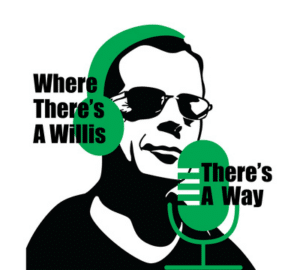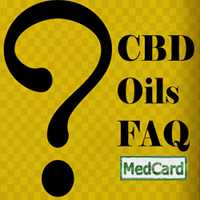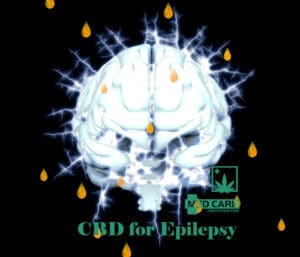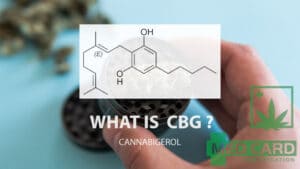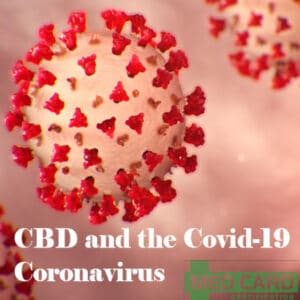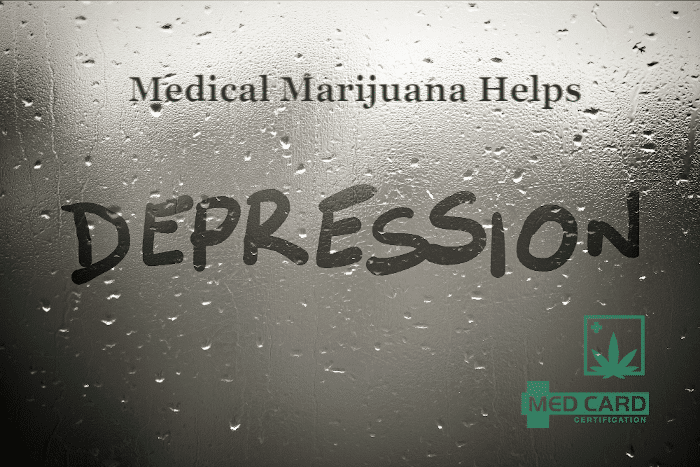
Treating Depression with Medical Marijuana – How It Helps
If you’re interested in getting a medical marijuana card to treat depression, this bud’s for you. In this article, we’re going to go over some of the ways patients are using medical marijuana for depression. We’ll also touch on some of the evidence that shows that marijuana is safe and effective for treating depression.
Occasional bouts of depression are an inevitable part of being human, especially in the face of a significant loss. However, for some folks, depression can linger on for months and prevent them from coping with everyday life. In the worst cases, depression can lead to a total loss of motivation.
Depression is sometimes referred to as clinical depression or major depressive disorder. The condition is characterized by feelings of sadness, of being overwhelmed, of lacking purpose, or feeling as if life is empty — often for no apparent reason. Clinical depression can also lead to other medical conditions such as insomnia, chronic pain, addiction, sleep disorders, eating disorders.
Ongoing depression can be the result of a chemical imbalance in the brain. If this is the case, we can’t simply “snap out of it.” It requires treatment. Oftentimes, depression patients will point to numerous reasons why they are depressed, when actually it’s the imbalance that’s causing them to focus on the negative aspects of life.
Pharmaceuticals that are typically prescribed to depression patients can come with a litany of unwanted side effects such as nausea, weight gain, loss of sexual desire, erectile dysfunction, fatigue, drowsiness, insomnia, and constipation. Although antidepressants are not addictive, they can be habit-forming. Moreover, some patients experience withdrawal effects when they discontinue use.
When properly utilized, medical marijuana can offer some depression patients a safe and effective herbal alternative to pharmaceuticals. Every patient is different and marijuana affects each patient differently.
However, many medical marijuana patients are finding some measure of relief or total relief. And many are able to stop using prescription drugs.
Moreover, medical marijuana, when used properly, and not abused, is one of the safest depression remedies available. Marijuana is non-addictive and non-toxic. There are also cannabis strains that are non-intoxicating.
Over the course of a multitude of lab studies and patient reviews, not one overdose death has been reported from the use of marijuana.
That being said, drug abuse of any kind can cause problems in a patient’s life. Overuse of marijuana can lead to lethargy. And being in a constant state of euphoria can lead to a lack of motivation.
So, what exactly is a proper way to treat depression without abusing medical marijuana? Before we go there, let’s talk a little bit about how medical marijuana helps to reduce or relieve symptoms of depression.
How does medical marijuana reduce depression?
As we mentioned earlier, depression is often the result of a chemical imbalance in the brain. Depression patients typically show low levels of a brain chemical called serotonin — often referred to as “the bliss molecule” for its ability to improve moods. A natural neurotransmitter called anandamide regulates the production and uptake of serotonin.
The active compounds found in marijuana — THC, CBD, CBG, etc. — are known as cannabinoids. Interestingly, anandamide is one of many cannabinoid compounds naturally produced by the human body. These cannabinoids produced in the brain are technically referred to as endocannabinoids, while those found in marijuana are known as phytocannabinoids.
Research has shown that phytocannabinoids mimic, to some extent, the effects of some endocannabinoids. Like anandamide, cannabinoid supplements have been shown to increase serotonin levels in the brain.
The two most common cannabinoids found in marijuana are THC and CBD. THC is the compound in marijuana that makes people feel “high.” CBD is non-intoxicating. These cannabinoids work in different ways to help tame depression. Together they provide a two-prong approach to relieving depression. While CBD has been shown to help modulate serotonin levels, THC imparts a sense of euphoria to the user.
Too much CBD can cause lethargy, and too much THC can cause excessive intoxication. So the trick is to find a balance between THC and CBD that works best for the patient and to find a dosing regimen that is effective while minimizing unwanted effects.
There is plenty of scientific and anecdotal evidence to back up the safety and efficacy of medical marijuana. However, rather than go into those details here we’ve provided several links to studies on medical marijuana and depression at the end of the article.
Different cannabis strains produce different effects
The term marijuana actually refers specifically to the resinous flower clusters of the female cannabis plant. Different cultivars or strains of marijuana produce different levels and ratios of THC and CBD. While some are high in THC and low in CBD, others are the opposite. And there are strains that cover the gamut in between.
Again, the trick is for the patient to find a strain that has the right balance of cannabinoids. Some patients find that low-THC, high-CBD strains relieve their symptoms without the risk of becoming intoxicated. There’s a category of cannabis strains called hemp that only produces trace levels of THC. Hemp flower and CBD-infused products can be purchased by anyone without a medical marijuana card and are usually far less expensive than marijuana.
Keep in mind that overuse of high-THC marijuana can make matters worse for depression patients. In addition to sapping motivation in some patients, excessive THC can cause problems such as anxiety and paranoia. For this reason, depression patients are well-advised to seek out marijuana strains that are either higher in CBD than THC, or that offer a good balance of the two, and to avoid high-THC strains.
How is medical marijuana used to treat depression?
The most common method of consuming marijuana is smoking the dried flower clusters — aka buds. However, there are numerous other methods that have become more and more popular over the past few decades.
Medical marijuana delivery methods to treat depression
Here are the medical marijuana delivery methods that are most commonly used to treat depression:
- Smoking or vaping marijuana – Marijuana buds can be smoked in cigarette form (aka joints) or in a variety of smoking pipes. This is actually the least recommended method for treating depression for the simple reason that long term use can result in conditions such as chronic bronchitis and high blood pressure. However, the effects of smoking and vaping marijuana are almost instantaneous as cannabinoids enter your bloodstream directly from the lungs. Marijuana buds can also be used in a dry herb vaporizer. A vaporizer essentially evaporates the cannabinoids without burning them. Although it’s thought to be safer than smoking marijuana, the jury is still out on that.
- Smoking and vaping marijuana concentrates – Marijuana concentrates such as hashish, cannabis oil, wax, live resin, and shatter are produced by extracting the oils or separating the resins from the flower clusters. Cannabis extracts can be further concentrated through a series of filtration and distillation to produce highly concentrated oils, and put into oral syringe form. All of these products are far more potent than raw buds and should be used with caution. Special implements made for smoking and vaping cannabis concentrates can be purchase at a marijuana dispensary, CBD shop, or online.
- Marijuana tinctures and oils – Cannabis-infused tinctures and oils are made by diluting cannabis concentrates in either alcohol or vegetable oil. Tinctures are dropped use under the tongue where the cannabinoids can be absorbed into the bloodstream via capillaries in the mouth. Oils can be used like tinctures or taken orally with food. Tinctures will take effect more quickly than oils.
- Cannabinoid-infused pills and capsules – Cannabis oils and purified cannabinoids can be put into pills or gelcaps like most herbal supplements. Pills and capsules will have a shorter onset time if taken without food. However, they’ll provide longer-lasting effects when taken with a meal.
- Cannabinoid-infused edibles – There are two major categories of edibles — cannabis-infused candy and also baked goods. When taken on an empty stomach, cannabis-infused candies will have a shorter onset time than baked goods such as brownies. Baked edibles or candies taken along with a meal are ideal for nighttime use as their effects are longer lasting. Marijuana edibles can also be made at home from raw flower or from cannabis oils, and cannabis concentrates.
What’s the proper dosage of medical marijuana for treating depression?
The most important piece of advice when using medical marijuana products is to start with the lowest possible dosage and then pay attention to the effect that it has on your body and your mood. Patients for whom even a low dose is a problem might realize adequate results from a technique known as microdosing. Or, again, hemp-derived CBD products might provide relief without the high.
Choosing the best CBD products for you – CBDbay
Depending on the patient’s size, five to ten milligrams of cannabinoids every four hours or so is considered a low dosage and is generally well-tolerated by most users. However, 10 milligrams of THC might cause some intoxication in some patients — especially early on. Microdosing can be as little as a couple of milligrams once a day.
If the low dosage doesn’t cause any unwanted effects, then the patient can slowly increase the dosage over the course of a few days until the desired effects are achieved.
In most cases, somewhere between 10 and 25 milligrams every four hours is sufficient for relieving symptoms of depression as well as some of the side effects of antidepressants. Again this really depends on the ratio of THC and CBD in the product. High-THC products should be used more sparingly than high-CBD/low-THC products.
Different medical marijuana products offer different dosages
Every type of medical marijuana product mentioned above contains different concentrations of THC and/or CBD. While the tinctures, pills, oils, and edibles that you purchase at a dispensary will list the dosage right on the package, it’s a little trickier to determine dosage when smoking, vaping, or cooking with marijuana.
A word of warning: When using edibles it’s important to remember that the onset of effects can take more than an hour. The common reason for excessive intoxication in marijuana users is due to double dosing too early. Overconsumption of edibles can produce a very unpleasant experience. Be patient.
Medical marijuana buds typically contain somewhere between 15 and 25 percent cannabinoids. As such, a 1 gram bud (1,000 milligrams) will contain about 150 to 250 milligrams. Doing the math, a 1 gram bud will provide ten doses of 10 milligrams each or five 20 milligram doses. A fairly accurate dosage can be achieved by breaking up the buds accordingly. The dispensary employees (called budtenders) should be able to tell you the percentage of THC and CBD in the flower.
Cannabis concentrates can be measured in the say way. If a concentrate contains 50 percent cannabinoids, then 1 gram will contain 500 milligrams of cannabinoids or fifty 10 milligram doses. Break up your product accordingly to assure accurate dosing.
How to get a medical marijuana card for depression
About three dozen U.S. states offer some form of medical marijuana program. Not all of them consider depression to be a qualifying condition. Also, each has its own rules concerning which medical marijuana products are permitted to be sold as well as the purchase and possession limits.
Click here for a list of U.S. states with medical marijuana programs. You’ll be able to find specific information on qualifying conditions as well as the steps required to obtain a medical marijuana card.
Click here for a map of medical marijuana doctors in your state.
Click here for a map of medical marijuana dispensaries near you.
Please note that depression is a serious medical condition that should be treated under the guidance of a trained medical professional.

Sign Up for Medical Cannabis Today!
For potential patients, if you’re ready, we make it easy to connect with a medical marijuana doctor nearby or online. If you are interested in getting certified, please fill out the MMJ patient registration form below and press submit to get started. See if you qualify today!

MedCard Registration Form

Sources and additional reading
- The endocannabinoid system and the treatment of mood and depression disorders
- Endocannabinoid signaling in the etiology and treatment of major depressive illness
- Survey: Nearly Half Of People Who Use Cannabidiol Products Stop Taking Traditional Medicines
- CBD Antidepressant Properties
- Antidepressant-like and anxiolytic-like effects of cannabidiol: a chemical compound of Cannabis sativa
- The endocannabinoid system and the treatment of mood and depression disorders





